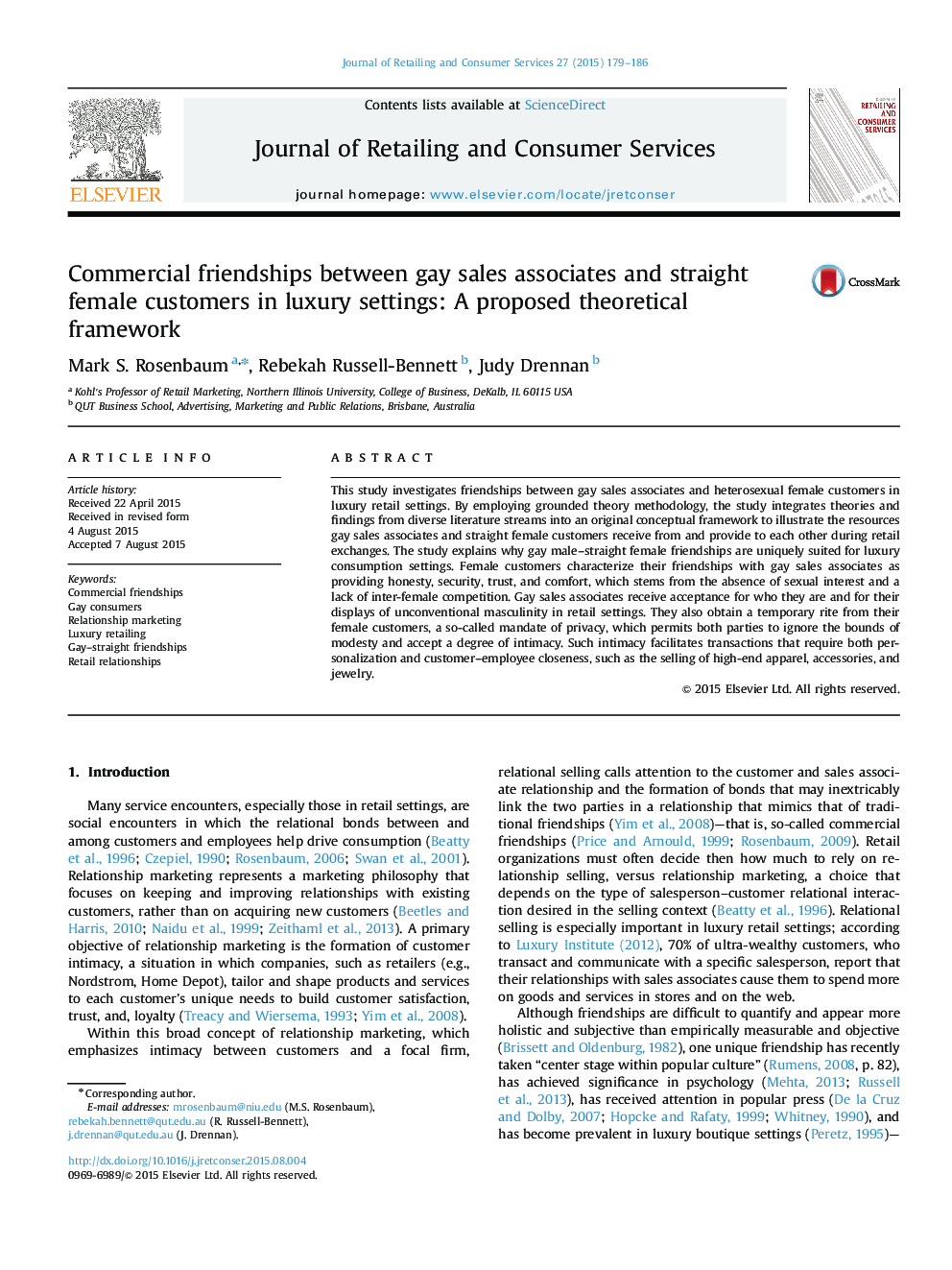| Article ID | Journal | Published Year | Pages | File Type |
|---|---|---|---|---|
| 1028947 | Journal of Retailing and Consumer Services | 2015 | 8 Pages |
•In-depth theoretical explorations into the development of commercial friendships between gay associates and straight female customers in retail settings are non-existent—until now.•We put forth an original “interactive family” theoretical framework that organizes a disparate stream of psychological, sociological, evolutionary biology, and popular press literature to explain why socially supportive, commercial friendships may form between gay sales associates and straight female customers in luxury retail settings.•Gay male associates provide female customers with a friendship that is based upon the absence of male–female sexual interest; this permits feelings of honesty, trust, security, and comfort to form between the parties.•Gay male–straight female relationships work in settings in which a female customer is trying to impress a heterosexual male; including, jewelry, apparel, accessories, and shoes.•Straight female customers provide gay male associates with general acceptance regarding their sexual orientation and lifestyle, in addition, they accept signals of unconventional masculinity. This includes gay males adding touches of feminine qualities to their gestures or clothing.•Straight female customers provide gay male associates with a mandate of privacy; that is, the ability to view or touch their bodies in non-sexual, but intimate manners.
This study investigates friendships between gay sales associates and heterosexual female customers in luxury retail settings. By employing grounded theory methodology, the study integrates theories and findings from diverse literature streams into an original conceptual framework to illustrate the resources gay sales associates and straight female customers receive from and provide to each other during retail exchanges. The study explains why gay male–straight female friendships are uniquely suited for luxury consumption settings. Female customers characterize their friendships with gay sales associates as providing honesty, security, trust, and comfort, which stems from the absence of sexual interest and a lack of inter-female competition. Gay sales associates receive acceptance for who they are and for their displays of unconventional masculinity in retail settings. They also obtain a temporary rite from their female customers, a so-called mandate of privacy, which permits both parties to ignore the bounds of modesty and accept a degree of intimacy. Such intimacy facilitates transactions that require both personalization and customer–employee closeness, such as the selling of high-end apparel, accessories, and jewelry.
